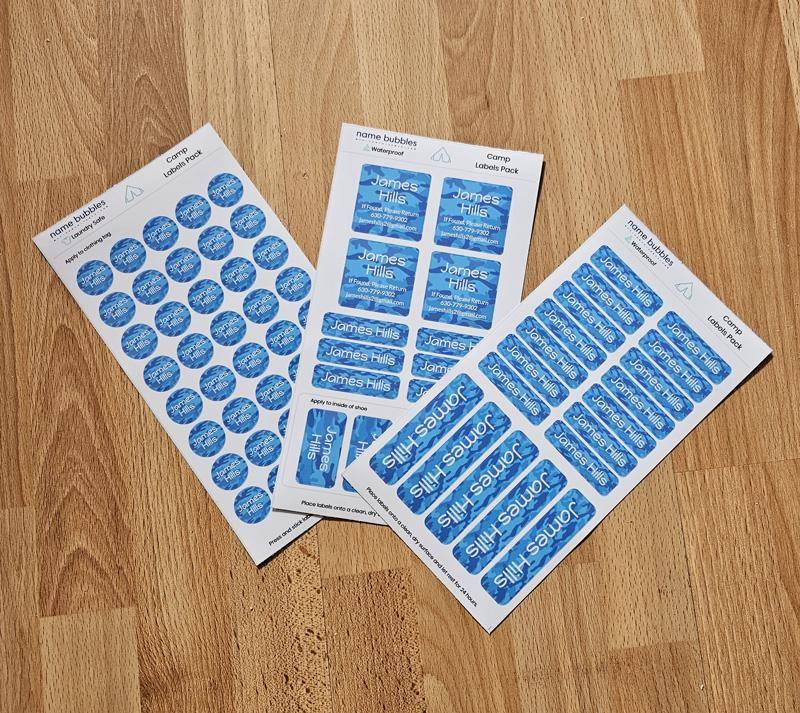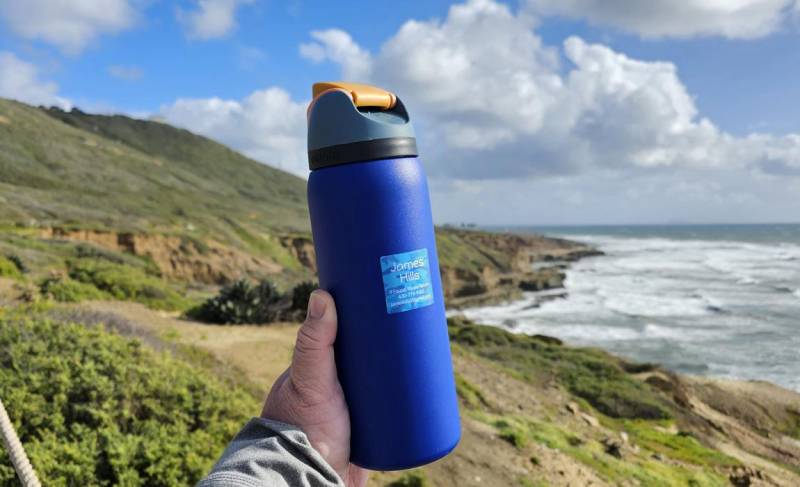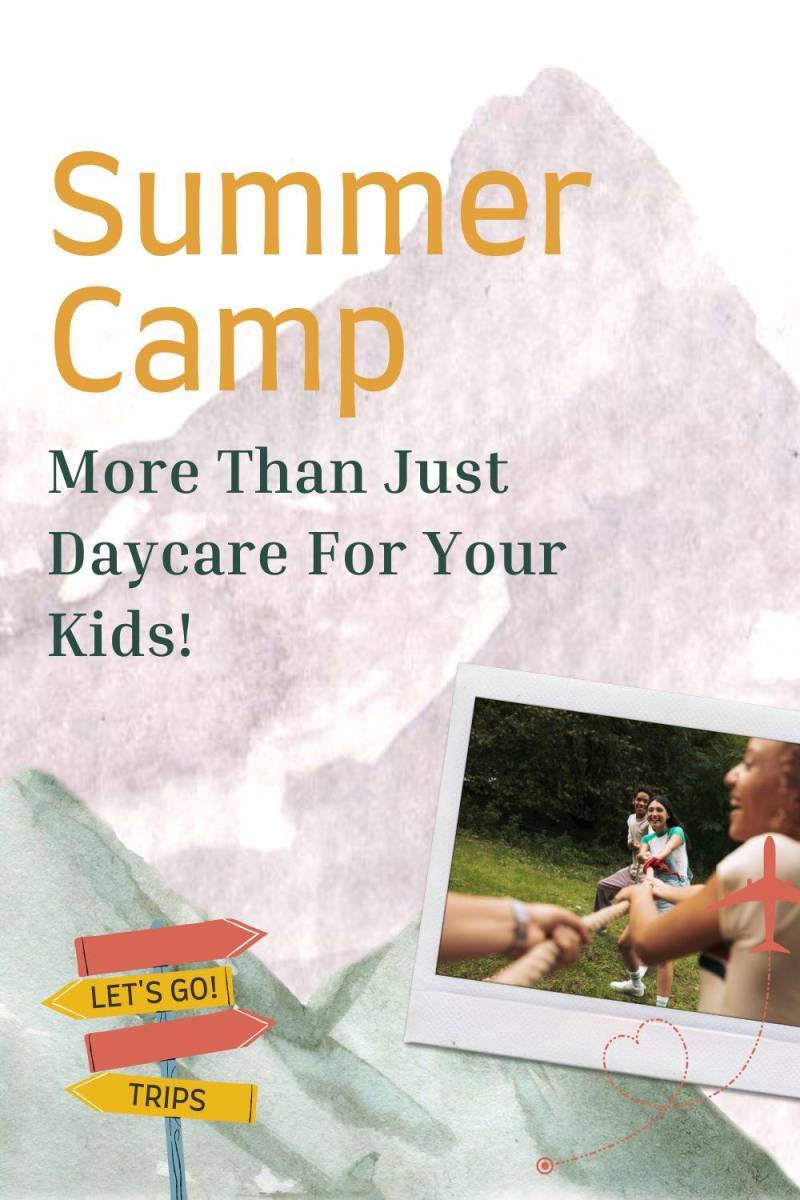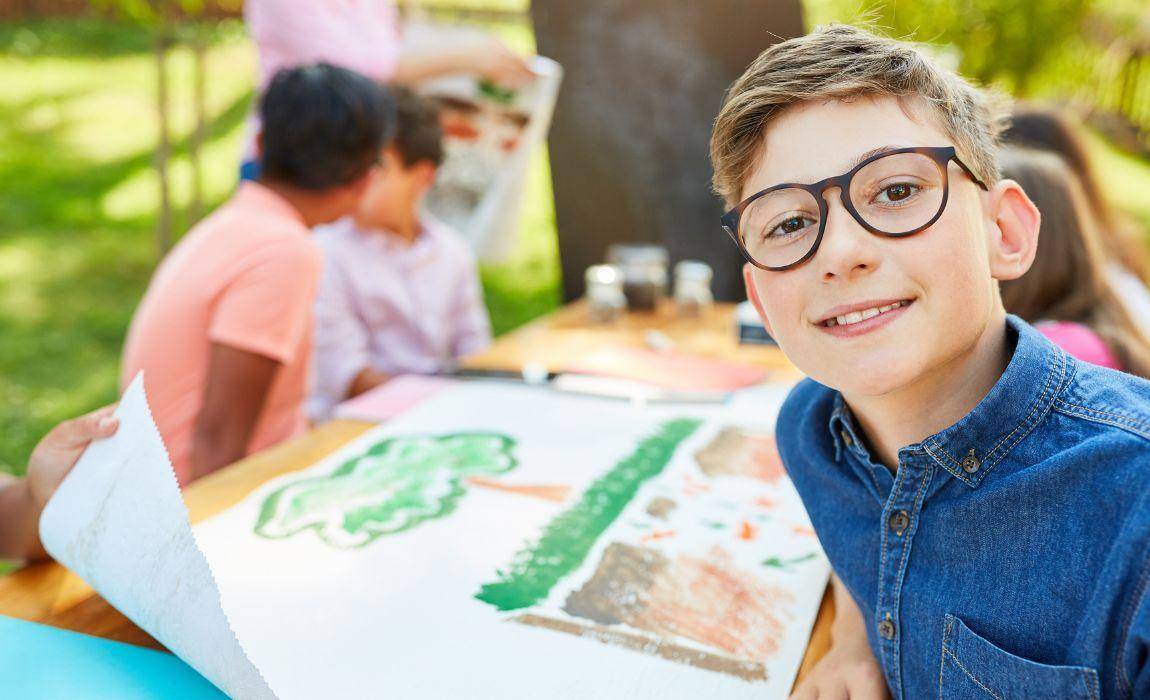Summer camp is a fun and exciting experience for kids. It's an opportunity to make new friends, explore the outdoors, and try lots of cool activities. But with all that excitement comes responsibility - parents need to share helpful advice on having a safe and enjoyable time at summer camp to make the experience a positive one. From packing wisely to looking out for fellow campers, here are some vital tips every parent should pass along before their child heads off to camp this summer.
What To Pack
Parents must help their kids prepare for summer camp by creating a list of essential items they need to pack. This includes clothing items and other necessary supplies, such as toiletries, bedding, snacks, etc. Depending on the type of camp, like an overnight or day camp, there may be different packing tips that should be followed.
Each camp will provide a list of recommended items but there are always some basics.
- Sleeping bag or bed roll
- Flashlight or headlamp
- Medications
- Toiletries including toothbrush, toothpaste, soap, deodorant, and shampoo/conditioner
- Sun protection such as sunscreen, hats, and sunglasses
- Rain gear such as rain jacket and boots
- Clothes that are appropriate for the weather and activities at camp
- Insect repellent and bug spray
- Water bottle
Most people would also think to add snacks to the list. However, before packing snacks, make sure to check your camp’s regulations. Some camps will allow snacks that are in the original factory-sealed containers and some won’t allow any outside food or drink. Others may prohibit items that contain allergens such as peanuts.

Dealing With Conflicts At Camp
Two main conflict areas cause friction at summer camp - lost / stolen items and personality conflicts. While we can’t solve personality conflicts, there are things we can help our kids with to avoid fights over lost and stolen items.
For instance, when I was a kid - my mom would write my name inside of my underwear, on the tongue of my shoe and pretty much anywhere else on my various items that a Sharpie could reach. We’ve moved past that today and now you can buy custom labels that stick to cloth as well as hard surfaces such as water bottle or even shampoo.
Name Bubbles has a ton of different designs that feature your kids name on them as well as even space to write your phone and email address as well.

With 112 different packs that feature designs that match pretty much any personality, you are certain to find one that is right for your kid and doesn’t look “silly”. Frankly, I was so impressed by the quality and design that even as an adult, I’m using them on my own water bottle in case it gets lost at a conference.
The Custom Camp Labels Pack and others in the series are designed to be dishwasher-safe, microwave-safe, freezer safe, and long-lasting. In addition to ones designed to “stick”, they also have Iron-On labels that you can add to clothing.
While this ultimately won’t solve the problem of boys behaving badly and stealing from each other, it makes conflicts a bit less likely since everything is labeled properly.
In terms of dealing with personality conflicts though, there will be fights. That’s just part of growing up and sending kids to camp. While you can work with your son or daughter and teach them self-defense skills, conflict management is also important.
Encourage them to solve problems peacefully with others; discuss strategies such as communicating clearly and calmly, listening carefully, and taking timeouts if needed. Remind your child that friendships don't have to be complicated! Explain problem-solving techniques so they can feel empowered when faced with difficult situations.
Teach your child how to recognize signs of bullying from peers, and how best to handle it without putting themselves in harm's way. Help them understand the importance of respecting different opinions and beliefs among friends, even if there are disagreements.
Finally, let your child know it’s okay to ask for help if things get too heated and out of control — this shows strength rather than weakness!
Respect For Other Campers And Counselors
Now that we’ve covered how to deal with conflicts at camp, respecting other campers and counselors is another important topic to discuss with your kids. Respectful behavior is essential for a positive experience at summer camp. Encourage your child to practice good manners and appropriate behavior when interacting with others. Listening skills should be developed so they can remember instructions given by counselors or rules established by the camp.
Let them know it’s important to have a considerate attitude towards their peers and respect boundaries set by the adults in charge of activities. A positive attitude will help create an atmosphere where everyone feels included and appreciated. Remind them that although disagreements may arise during the week away from home, there are ways to resolve issues without hurting someone else's feelings.
Kids must understand how being respectful helps build relationships between themselves and their fellow campers and staff members. Explain the importance of treating people kindly, even if they don't always agree on everything. They need to learn how to use words instead of physical actions when faced with difficult situations. Teaching these skills now will benefit them during this summer and throughout life in general!
Summer Camp Is A Great Time To Develop New Skills
Summer camp is the perfect place for kids to develop new skills. Camp activities offer a variety of ways for children to learn and grow, from outdoor activities such as team-building exercises and nature exploration to problem-solving games and craft-making.
These activities can help children hone their existing skills while developing new ones. They will have opportunities to explore different areas of interest that they may not normally get to experience at home or school. With each activity, kids can gain confidence in themselves and build social relationships with others by communicating and collaborating on projects together.
Parents should encourage their children to try something new during summer camp.
This could be anything from playing an unfamiliar sport, learning to cook, creating art pieces, or even gaining leadership by volunteering to be a team captain.
Regardless of what skill is chosen, parents need to remember that practice makes perfect! Encourage your child throughout the process and remind them that there are no mistakes: only lessons learned that will ultimately lead them closer to achieving their goals.
Making New Friendships Is One Of Camp’s Greatest Joys
Summer camp is an excellent opportunity for children to explore and build relationships with peers, from developing new skills to making new friendships. To help kids feel comfortable socializing at camp and reaching out to others, it's important for parents to share some helpful advice.
Finding a kindred spirit is one of the most effective ways to make lasting bonds when meeting new people. Encourage your child to seek out someone who shares similar interests or values; this will provide them with a common ground on which they can connect and form meaningful relationships. Furthermore, remind your child that it's okay if they don't find their perfect match right away - forming friendships often takes time!
It’s also beneficial for kids to be open-minded about expanding their social circle while at camp. Remind them that even though not everyone may have the same beliefs as them, having different opinions helps broaden perspectives and create deeper understanding between individuals. By engaging in conversations with diverse groups of people, kids may learn something valuable from each other and establish lifelong connections along the way.
At summer camp, children have endless opportunities to diversify their friend group – so get creative! From participating in activities together to inviting fellow campers over for dinner parties, there are plenty of fun ways for your child to meet like-minded individuals and gain invaluable experiences that go beyond learning new skills.

Eating Healthy At Camp
When packing for camp, you should check the regulations and packing list to determine what snacks your child can bring. Eating healthy at camp can be a challenge, but plenty of options will be available. Ensure they know their food choices and what will provide them with the most nutrition throughout their stay.
This is a good time to discuss things like the importance of avoiding foods that can cause intestinal issues as well as encouraging those foods that will lead to them having plenty of energy while avoiding that “afternoon slump”.
Nutritious meal options at camp may include sandwiches on whole grain breads accompanied by fresh fruits and vegetables; yogurt parfaits made with Greek yogurt topped with berries; salads filled with beans and grains; grilled chicken served over quinoa; wraps stuffed with lean proteins and crunchy veggies; hearty soups created from leftover ingredients; burrito bowls featuring brown rice, black beans and salsa; stir fry dishes packed with colorful peppers, onions and broccoli – the possibilities are endless!
Encourage your child to make good decisions when choosing meals while away at camp but remember that camp is about having fun. While you might want them to eat boneless skinless chicken breasts and broccoli … it’s more likely that they are going to be enjoying plenty of fire-roasted wenies too. Help them understand why eating well is essential for staying energized both physically and mentally in order to make the most out of their adventure!
Keeping Hygiene In Check
Parents must talk with their kids about hygiene and staying clean during summer camp. Boys tend to have more of an issue with this than girls, but depending on their ages, there might be specific issues that children of both genders need to have you help prepare them with before sending them away to camp.
From stinky pits to dirty fingernails as well as making sure they understand proper bathroom habits, they need to know that you won't be there to make sure they do things correctly. Good personal hygiene practices are essential to staying healthy, preventing illnesses or skin infections, and remaining comfortable on a daily basis. Things such as body odor, bad breath, or hair that hasn’t been washed in days can also send the wrong message to potential new friends.
Here are some personal hygiene tips to share that can help:
- Showering regularly - remind your child to take at least one shower every day while they’re away at camp; it helps them feel refreshed and more confident throughout the day!
- Washing hands often - having your kid wash their hands frequently will reduce the risk of getting sick from germs around the camp. Make sure they use soap and warm water for 30 seconds each time.
- Sanitizing equipment - encourage your child to sanitize anything used by many people like door handles, eating utensils, etc., before using them themselves to avoid spreading any germs or bacteria.
- Pack toiletries & cleaning supplies - tell your kid to bring enough shampoo, conditioner, body wash, toothbrush/toothpaste, hand sanitizers, wipes, etc., so they have all the necessary items needed for proper hygiene maintenance throughout their time at camp.
Overall, keeping up with hygienic habits is key to preventing illnesses or other health issues while enjoying an amazing summer camp experience!
The Importance Of Trying New Things
The summer camp experience is like a canvas, filled with exciting opportunities to explore and create. It's up to the camper to take advantage of these activities and try something new. Encourage your child to learn new activities or discover a hobby they have never tried before. Remind them that risk-taking and venturing into unfamiliar territory can often lead to unexpected rewards.
Exploring different experiences helps kids develop new skills while also allowing them to challenge themselves in ways they wouldn’t usually do at home. Whether it's playing volleyball for the first time or learning how to make friendship bracelets, trying something out of their comfort zone could be just what your child needs this summer. Summer camps offer various programs and events specifically designed for children who want to broaden their horizons beyond what’s familiar.
When attending summer camp, remind your child that it's important not only have fun but also use the opportunity as a chance to try something different and build on existing talents. Helping your kid step outside their comfort level will provide endless possibilities for growth both mentally and physically.
Dealing With Homesickness
Dealing with homesickness is a common issue for kids at camp. Fortunately, there are some tips that parents can share with their campers to help manage the feelings of loneliness and sadness associated with being away from home.
The first tip for preventing or managing homesickness is to stay busy! Camps often have plenty of activities that campers will enjoy doing throughout the day. Keeping them occupied will help minimize any time spent worrying about home.
Another useful tip is to keep in touch with friends and family back home. Parents should encourage their children to call or write letters home frequently to ensure they still feel connected while away. Staying informed on what's going on back home helps prevent those lonely feelings from setting in too deeply.
Finally, it’s important for both parents and campers to remember that feeling homesick is natural – it doesn't mean anything bad about your child or the experience they're having at summer camp. With just a few simple, actionable tips, you can help ensure your camper has an enjoyable and successful summer camping experience!
How To Stay In Touch With New Friends After Camp Ends
Friendships formed at summer camp are truly special, like a tapestry of shared memories that can last for years. After the fun and excitement of camp fades away, it's important to find ways to keep in touch with your new friends. Here are some tips on how you can stay connected:
- Exchange Contact Information: Make sure you get each other's mailing address, phone number or email address so you can stay in contact after camp ends. It's also helpful to exchange social media contacts if possible.
- Connect Online: Social media is great way to keep up with your old friends from camp. Post pictures and share stories about all the fun times you had together! You could even create an online group chat where everyone can post updates and messages when they have news or want to catchup with one another.
- Plan Future Meet-Ups: Camp friendships don't have to end once camp is over; plan future meet-ups with your friends throughout the year - whether it be camping trips, weekend sleepovers or day trips out somewhere – staying connected will help maintain those relationships long after summer has ended.
Therefore, it’s essential that parents provide their children with advice on how best to make sure these special connections created during summer camp remain strong no matter where life takes them next!

Summer Camp Is Not Just Daycare
Parents need to share the advice that summer camp is not just daycare. It's an opportunity for kids to have fun, engage in enriching activities, and gain new experiences. Summer camp offers a chance to build social skills, practice teamwork and learn about different cultures.
At summer camp, children are surrounded by other kids who want to make friends and participate in exciting projects. They can try out different sports, crafts or music classes —all of which encourage self-expression and creativity. Through these types of activities, they can also develop important life skills such as problem-solving and communication.
Summer camp provides a safe environment where kids can explore their interests without feeling judged or pressured.
Parents should remind their child that it’s okay to take risks at camp; learning to fail gracefully will help them succeed later in life. Encourage your kid to fully embrace this unique experience so they get the most out of it!
Remember, if you are interested in learning more about Name Bubbles, check out our link for more information: bit.ly/3ZqMgRC You can also use code mantripping for a discount on your order!
